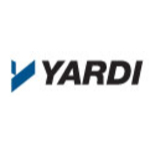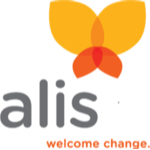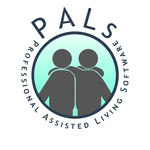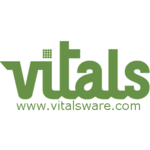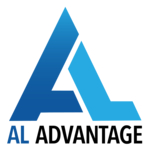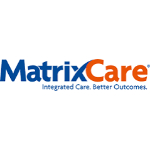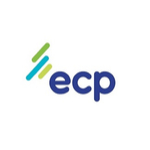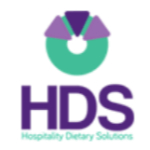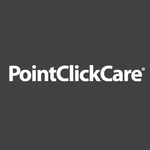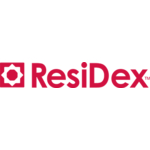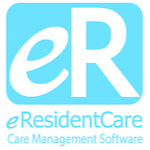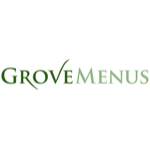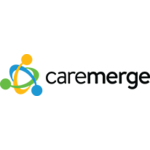TechnologyCounter provides genuine, unbiased real user reviews to help buyers make informed decisions. We may earn a referral fee when you purchase through our links, at no extra cost to you.
List of 15 Best Assisted Living Software
Showing 1 - 15 of 22 productsYardi is a leading technology solution for the real estate industry, aimed at streamlining property management and investment processes. With its user-friendly interface and powerful features, Yardi brings efficiency and transparency to the managemen...Read Yardi Reviews
ALIS, the innovative software transforming the way businesses manage their operations. With its intuitive user interface features, ALIS streamlines tasks and improves efficiency. From organizing data to automating processes, ALIS is the all-in-one so...Read ALIS Reviews
PALs is a all-in-one solution for simplifying and streamlining your work processes. Designed to enhance productivity and efficiency, PALs offers a user-friendly platform for managing tasks, projects, and collaborations. Say goodbye to cluttered email...Read PALs Reviews
Vitals is a software designed to revolutionize the healthcare industry. With its advanced technology and user-friendly interface, Vitals streamlines vital data collection, analysis and storage, making it an essential tool for medical professionals. S...Read Vitals Reviews
AL Advantage, the ultimate tool for streamlining your business processes and boosting efficiency. With its user-friendly interface features, our software is designed to maximize productivity and optimize workflow. Say goodbye to tedious tasks and hel...Read AL Advantage Reviews
MatrixCare is a leading electronic health record (EHR) software that has revolutionized the healthcare industry with its user-friendly, advanced features. Designed to streamline and optimize the daily operations of healthcare organizations, MatrixCar...Read MatrixCare Reviews
ECP, an innovative software designed to simplify and streamline your business processes. This powerful tool combines advanced technology and user-friendly interface to enhance productivity and efficiency. Say goodbye to tedious tasks and hello to a m...Read ECP Reviews
HDS Dietary is a software designed to simplify and streamline the dietary management process. By utilizing innovative technology and user-friendly features, HDS Dietary is here to transform the way dietary teams handle nutrition planning, meal prepar...Read HDS Dietary Reviews
Interested in streamlining your daily tasks and increasing efficiency at work? Look no further than ADL is a software solution for all your administrative needs. With its user-friendly interface features, ADL is the perfect tool for busy professional...Read ADL Reviews
PointClickCare is a leading electronic health record (EHR) platform that helps healthcare providers streamline and optimize their daily operations. With its intuitive and user-friendly interface, PointClickCare serves as a crucial tool for managing p...Read PointClickCare Reviews
ResiDex is a all-in-one solution for managing resident information, scheduling, and billing. With its user-friendly interface and customizable features, ResiDex streamlines and simplifies the operations of senior living communities. Say goodbye to pa...Read ResiDex Reviews
AHT, the ultimate software solution for all your business needs. Developed by a team of experts, AHT offers unparalleled efficiency and ease of use, making it an essential tool for any modern company. Say goodbye to complicated processes and hello to...Read AHT Reviews
eResidentCare is a software designed to streamline and simplify care management for residential facilities. With its user-friendly interface, advanced features, and customizable options, eResidentCare is transforming the way caregivers provide qualit...Read eResidentCare Reviews
Caremerge revolutionizes senior care management by offering a user-friendly and innovative platform that enhances communication, efficiency, and quality of care. This all-in-one software combines features such as scheduling, family engagement, and he...Read Caremerge Reviews
- What Is Assisted Living Software?
- Top Reasons Why Businesses Need Assisted Living Software?
- What Are the Top Key Features of Assisted Living Software?
- What Are the Top Benefits of Assisted Living Software?
- What Are the Steps to Choose the Right Assisted Living Software?
- What Are the Types of Assisted Living Software for Different Industries?
- What Are the Technology Trends for Best Assisted Living Software?
- What Are the Deployment Options for Assisted Living Software?
What Is Assisted Living Software?
Assisted living software is software that is developed to help people who require extra assistance with daily duties due to medical difficulties. These programs are intended to improve the quality of life and reduce the load on family members or caregivers.
In general, these applications help with activities such as medication management, appointment scheduling, communication tools to stay in touch with friends and family, and medical guidance. A number of software alternatives, ranging from basic mobile technologies to specialist applications for more complex demands, can be employed depending on the level of help required.
The supported living software, for example, may be intended to remind a user to take their meds or to notify them when an appointment is approaching. Regardless of the program selected, it is critical to ensure that the assisted living software can give the best amount of support for the user's needs.
Top Reasons Why Businesses Need Assisted Living Software?
1. Accounting Support: The utilization of assisted living software facilitates the precise documentation and monitoring of clients' financial transactions by enterprises. This encompasses the functions of billing, invoicing, and the provision of reporting tools for the purpose of observing trends and modifications.
2. Administrative Assistance: Assisted living management software streamlines the operational tasks inside the organization's administrative framework. This encompasses many tasks such as automated appointment scheduling, prescription administration, room allocations, and other related activities.
3. Patient Management: The utilization of the best assisted living software facilitates the provision of optimal care for patients. This include the provision of reminders for regular chores, the monitoring of medical history, the documentation of assessments, and the recording of other crucial information to guarantee optimal care.
4. Security Features: The supported living software employs encryption techniques to safeguard sensitive personal patient information. This measure aids in the preservation of patient confidentiality and security.
5. Efficiency Benefits: The utilization of assisted living management software facilitates expedited communication and data processing capabilities. This phenomenon leads to an acceleration in the rate of decision-making and facilitates expedited retrieval of data compared to standard procedures.
6. Cost Savings: The utilization of the best senior living software has the potential to mitigate costs related to the provision of care for the elderly. The utilization of software can also lead to a reduction in the required workforce, hence enabling enterprises to achieve cost savings in terms of labor expenses.
7. Detailed Reports: The utilization of supported living software facilitates the generation of comprehensive reports, which serve to analyze and evaluate the efficacy of aging services offered by the business. Organizations can leverage these reports to enhance decision-making processes and optimize service offerings.
8. Mobility: The accessibility of senior living management software extends to remote locations. This enables enterprises to maintain connectivity with their clientele and caregivers, even in instances where they are physically absent from their establishment.
9. Features for Caregivers: Assisted living management software offers a range of functionalities that facilitate enhanced caregiving for the aging population. This encompasses the utilization of real-time tracking, communication tools, and notifications in order to guarantee the protection of individuals.
10. Automated Reminders: The utilization of assisted living software facilitates the provision of automatic reminders to both staff members and carers, thereby ensuring timely administration of prescriptions and attendance to appointments for patients. This practice aids in maintaining organizational efficiency and guarantees that all patients receive appropriate attention without any oversight.
11. Better Coordination: Supported living software facilitates the coordination of tasks among various personnel and caregivers. This practice facilitates the allocation of responsibility among team members, hence ensuring the timely completion of all assigned tasks.
12. Accreditation Support: Assisted living management software facilitates the fulfillment of accreditation criteria by businesses. This may encompass the documentation of specific protocols, the upkeep of logs, and adherence to certain compliance standards.
13. Resident Engagement: Supported living software facilitates the provision of interesting and interactive activities to senior individuals by enterprises. This can encompass tailored learning experiences, the establishment of goals, and additional elements.
14. Care Team Integration: The utilization of the best assisted living software facilitates the seamless integration of care teams across several locations within enterprises. This practice can contribute to the maintenance of consistent healthcare provision and mitigate the occurrence of errors during the transition of patients between different healthcare settings.
15. Data Organization: Senior living management software facilitates the systematic organization and management of data pertaining to the aging population. This encompasses structured formats and the monitoring of pharmaceutical administration.
What Are the Top Key Features of Assisted Living Software?
The top key features of assisted living software include:
1. Activity management: This functionality allows activity directors and staff members to effectively generate and organize activities, assign others to engage in them, and assess and document outcomes in order to guarantee that residents achieve positive outcomes.
2. Medication administration and management: The utilization of the best senior living software facilitates the effective management of drugs for residents, hence guaranteeing accurate and timely administration of medications.
3. Electronic health records (EHR): The assisted living management software possesses the capability to save and integrate essential health records and documents, hence facilitating convenient retrieval of health history and ensuring the maintenance of up-to-date records while addressing privacy issues, among other factors.
4. Health reminders: This functionality facilitates the automated dissemination of reminders for medication intake and appointments, thereby ensuring the punctual administration of medication and attendance at medical consultations.
5. Nutrition and dietary tracking: This enables the staff to effectively monitor and guarantee that the residents are receiving adequate nourishment, while also facilitating the maintenance of a balanced and healthful dietary regimen.
6. Incident and emergency management: The senior living management software aids in the effective management of any incidents or emergencies that may arise within a residential setting, enabling staff members to promptly react and respond in order to protect the safety of individuals.
7. Reporting and analytics: This functionality allows personnel to generate reports and analytics for the purpose of evaluating important performance parameters.
8. Care coordination: This functionality enables personnel to effectively administer care plans for residents, hence enhancing their understanding of the resident's progression throughout their assisted living tenure.
9. Billing and invoicing: This functionality allows personnel to create invoices for remittance and oversee the administration of billing for services provided.
10. Customizable user interface and workflows: The utilization of assisted living software facilitates the customization of user interfaces and processes in order to effectively cater to the specific requirements of both residents and staff members.
What Are the Top Benefits of Assisted Living Software?
1. Automated medication reminders: Assisted living software has the potential to enhance the administration of medication for seniors and carers through the implementation of automated reminders. This technology facilitates the prompt and dependable distribution of drugs.
2. Enhanced safety features: Assisted living management software has the potential to enhance the safety of elderly individuals by offering alert systems and notifications in the event of hazardous or unforeseen circumstances.
3. Better communication tools: Assisted living software facilitates enhanced communication channels between carers and elderly individuals, hence enabling more effective and prompt exchanges.
4. Improved care plans: Numerous best senior living software designed for assisted living incorporate individualized care plans that are customized to meet the specific needs of elderly individuals, so contributing to the provision of enhanced quality care.
5. Easily updated records: The software utilized in assisted living facilities possesses the capacity to efficiently modify records, so ensuring the maintenance of precise and current information. This practice aids in ensuring a shared understanding among all parties involved in the provision of care for an elderly person.
6. Increased staff efficiency: Assisted living management software facilitates enhanced task and activity management for staff members, hence contributing to heightened worker productivity.
7. Accessible activity scheduling: The utilization of the best assisted living software facilitates the efficient and convenient scheduling of daily activities for elderly individuals by staff members, so contributing to the establishment of an atmosphere that is characterized by enhanced organization and comfort.
8. More accurate billing: Senior living management software facilitates the provision of precise and current billing data for elderly individuals, hence simplifying the process of monitoring and overseeing financial information.
What Are the Steps to Choose the Right Assisted Living Software?
1. Determine the requisite functionalities of an assisted living software. Assess the software's capacity to fulfill the health, safety, and organizational requirements of the facility.
2. Ascertain the authorized budget for software and hardware expenditures, encompassing any supplementary costs associated with training and implementation.
3. The task at hand involves conducting research on several software solutions, encompassing an examination of their extensive features and the corresponding expenses linked with each option.
4. Generate a comprehensive set of criteria for the senior living management software, encompassing essential features such as resilient tracking, comprehensive reporting, and proficient medical records functionalities.
5. In order to effectively deploy the new system, it is imperative to establish a comprehensive calendar outlining the various stages and milestones of the implementation process.
6. Additionally, a well-structured plan should be devised to facilitate the smooth movement of existing data and personnel onto the new system.
7. The examination of potential hazards related to the new system, including issues of interoperability and data security, is warranted.
8. It is advisable to solicit demonstrations and/or avail trial offers from software suppliers in order to evaluate the functionalities of their top assisted living software.
9. Inquire with present or former software users regarding their feedback pertaining to the user experience, customer support system, and observed outcomes.
10. The investigation should be conducted on the technical support and scalability of the software vendor.
11. Assess the price framework and characteristics in order to align with the present financial resources.
12. Render a determination predicated upon the comprehensive analysis and evaluation of each software solution.
What Are the Types of Assisted Living Software for Different Industries?
Assisted living software catering to various businesses may encompass specialist software specifically tailored for:
1. Elder care facilities: The program is specifically developed to enhance the administration of medical data, staff scheduling, residents' activities scheduling, and the monitoring of resident care quality.
2. Nursing homes: The assisted living management software is specifically developed to enhance the efficiency of medical and administrative procedures, facilitate the automation of medical billing tasks, and effectively monitor and manage patient information.
3. Home health agencies: The best senior living software is specifically developed to enhance the process of patient monitoring and tracking treatment plans, medication adherence, as well as to offer communication capabilities for both patients and caregivers.
4. Hospices: The software is specifically developed to effectively handle patient records, facilitate end-of-life care for patients, and offer assistance in scheduling hospice services.
5. Retirement communities: The senior living management software is specifically developed to enhance the efficiency of maintaining and managing resident activities, tracking health information, and facilitating the sharing of community-related information.
What Are the Technology Trends for Best Assisted Living Software?
The utilization of the best assisted living software is experiencing a notable surge in popularity within contemporary society, which is heavily influenced by advancements in technology. The field of assisted living management software is characterized by dynamic and evolving technology trends, which are driven by the ever-changing demands of customers and the continuous improvement of technology.
The following are contemporary technology advances pertaining to optimal assisted living software:
1. Artificial intelligence (AI) and robotic process automation (RPA): The integration of Artificial Intelligence (AI) and Robotic Process Automation (RPA) is being used within supported living software systems in order to enhance the quality of care provided to residents by offering improved accuracy and a more complete range of services.
The utilization of this sophisticated technology enables enhanced administration of individual health records, automated prompts for medication adherence, and advanced data analysis for monitoring and forecasting the health requirements of residents.
2. Cloud-based software: The utilization of cloud-based software is rapidly gaining popularity as the preferred option for top assisted living software. This particular software has the capability to efficiently expand storage capacity, facilitate streamlined data organization, and enable unrestricted retrieval of documents from any location at any time.
Additionally, this technology obviates the necessity for conventional servers, hence resulting in time and cost savings.
3. Automated scheduling and communication: The utilization of automated scheduling and communication methods, such as text messaging or email, facilitates the establishment of connections between providers and residents, while also enabling the efficient dissemination of crucial notices.
This technological advancement streamlines the processes of scheduling and communication, enabling providers to promptly and effectively address emergency circumstances.
4. Biometric authentication: The utilization of biometric authentication is gaining traction in assisted living software due to its heightened security and convenience in verifying identities and granting access to medical or health records.
This form of identification instills a sense of safety and confidence among inhabitants regarding the security and protection of their personal information.
Assisted living companies can optimize the quality of care provided to their residents by embracing cutting-edge technologies and staying abreast of evolving trends.
What Are the Deployment Options for Assisted Living Software?
The implementation of top assisted living software may demonstrate variety depending on the specific needs and preferences of the user. The current deployment choices include of on-premise, cloud-based, and hybrid setups.
On-premise deployments involve the installation and configuration of software on an organization's internal servers, thereby providing the business with full control over the product and its maintenance.
Cloud-based deployments are distinguished by their dependence on internet-based infrastructure and their absence of requirement for physical hardware or software installation. The user effectively employs the software by accessing it through cloud-based infrastructure, which is managed by a third-party service provider.
In a hybrid deployment, an organization possesses the capacity to host specific software components on its internal servers while concurrently accessing other components through the cloud. This affords consumers the benefits of both alternatives and confers upon them a significant level of flexibility.
